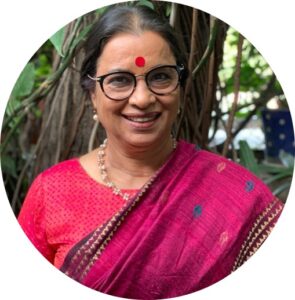 The post-pandemic year 2021 was a year that could best be described as a year of hope, grief and resilience. Despite tackling the challenges posed by Covid-19, our spirit of enthusiasm and courage prevailed.
The post-pandemic year 2021 was a year that could best be described as a year of hope, grief and resilience. Despite tackling the challenges posed by Covid-19, our spirit of enthusiasm and courage prevailed.
With the atmosphere of fear and uncertainty that is characteristic of the global pandemic, an important question arises on our future roles and contributions. Organizations and NGOs such as ours, work in collaboration with the government’s control mechanisms.
At the same time, NGOs are a key link in the government programmes’ implementation value chain.
Hence, it is unquestionable that without the presence of NGOs, any progress and deep impact of the Centre’s initiatives are unlikely. In these times stricken by anxiety and volatility, CSR understands the need for adaptability and flexibility in approach and thus, our initiatives have broadly been re-structured around safety, family, society, education, health, skill development, employment engagements and environment for the marginalized populations.
During these unprecedented times, we are primarily concerned with women’s empowerment. There is a strong patriarchal structure that is behind the marginalization of women, which has become even more evident in the post-pandemic year, with a surge in child marriages and domestic violence. The heavily gendered roles and limitations that exist in household relations have come to the forefront, as a result of the pandemic. We believe that it is important to recognize, analyse and address these basic gender relations at the household level so that any real change can take place. Our initiative for ‘16 Days of Activism’, as part of the international campaign addressed the issues of gender-based violence against women and girls.
Through amplifying violence against women using social media tools such as a video campaign, tweet chats and podcasts, we enabled mainstream media dialogue on the challenges that women face in their daily lives due to the threat of violence. As an organization, we attempt to define what empowerment means for Indian women and establish accountability as an important part of the process. It is the notion of community empowerment that we work towards, in addition to individual empowerment. We allocate our resources to women’s empowerment workstreams such that, a strong accountability relationship is built. This is evident through our wide-ranging programmes on women’s skill development, women’s relief response to covid-19, e-counselling for domestic violence survivors and training of frontline healthcare workers. It is because of all these efforts that the idea of ’empowerment of women is gradually gaining currency.
This is a period that is undergoing a rapid structural change because of the after-effects of the pandemic. Hence, it is a period of remedial developments, adaptability, and agility. What this means for CSR is that these are uncertain times with changing aid dynamics. Still, we have managed to garner support from several donors and partners, to create synergies and collective impact. With that being said, our aim is to be classified as an effective, adaptable and, result-oriented NGO.
CSR has threefold focus areas – grassroots, research and advocacy matters. We have a well established grassroots network, driven by strong social change, mainly through women’s empowerment programmes wherein people are being trained regularly in order to build up their capacity and competence. Our research wing emphasizes evidence-based gender mainstreaming across development activities and, conceptualizes enrolment, retention and, training programmes for sports and education initiatives. With respect to advocacy- political leadership of women, gender sensitization and digital citizenship are our key concerns.
In conclusion, I’d like to state that CSR aims to make a difference. At each landmark stage, we acknowledge our unsung heroes, the strong Indian women standing at the forefront of harsh circumstances. Our inspiration comes through this indomitable spirit, which we aim to imbibe in our development practice. I express my gratitude to the team for facilitating interactions with partners and appreciate the inputs on intellectual developments and ideas, despite limitations faced in day-to-day work.
